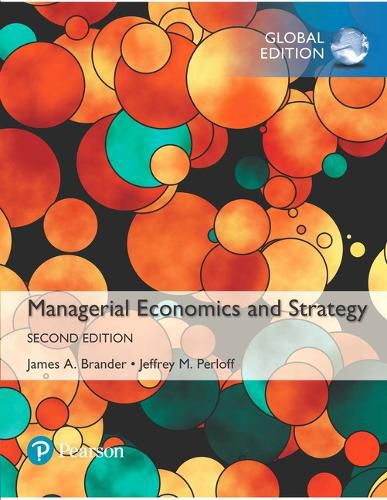Readings Newsletter
Become a Readings Member to make your shopping experience even easier.
Sign in or sign up for free!
You’re not far away from qualifying for FREE standard shipping within Australia
You’ve qualified for FREE standard shipping within Australia
The cart is loading…






For courses in Managerial Economics.
A Problem-based Approach that Uses Modern Theories and Real-world Examples
Managerial Economics and Strategy uses real- world issues and examples to illustrate how economic principles impact business decisions. Emphases on agency and contract theory, managerial behavioral economics, game theory, and pricing are especially valuable to future managers. In-text examples and boxed mini -cases use actual data to illustrate the use of basic economic models, while Q&As pose important managerial or economic problems and demonstrate a step-by-step approach to solving them.
The 2nd Edition has been fully revised and updated to reflect new supply-and-demand curves and include discussions of corporate social responsibility, opportunistic behaviour, and innovation. It also features new learning objectives, examples, end-of-chapter questions, and spreadsheet exercises.
$9.00 standard shipping within Australia
FREE standard shipping within Australia for orders over $100.00
Express & International shipping calculated at checkout
For courses in Managerial Economics.
A Problem-based Approach that Uses Modern Theories and Real-world Examples
Managerial Economics and Strategy uses real- world issues and examples to illustrate how economic principles impact business decisions. Emphases on agency and contract theory, managerial behavioral economics, game theory, and pricing are especially valuable to future managers. In-text examples and boxed mini -cases use actual data to illustrate the use of basic economic models, while Q&As pose important managerial or economic problems and demonstrate a step-by-step approach to solving them.
The 2nd Edition has been fully revised and updated to reflect new supply-and-demand curves and include discussions of corporate social responsibility, opportunistic behaviour, and innovation. It also features new learning objectives, examples, end-of-chapter questions, and spreadsheet exercises.